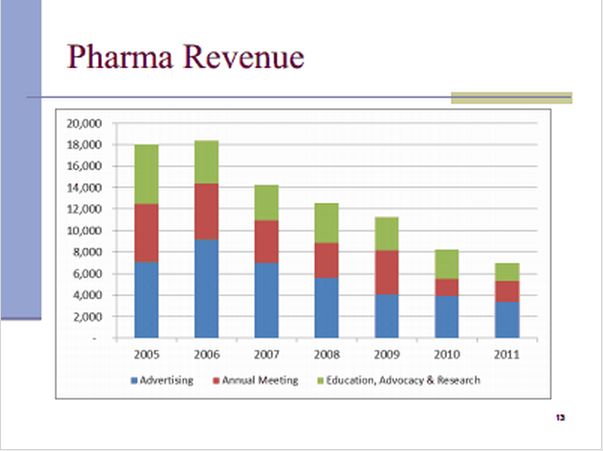Jeffrey Lieberman, president of the APA, asks us to be nice to poor, little Big Pharma.
He notes past problems, "including high drug prices, aggressive marketing practices and direct-to-consumer advertising, efforts to buy influence with physicians, and, perhaps most egregiously, the suppression of data on drugs’ dangerous side effects."
He goes on to say:
But let’s face it, they need us and we need them. We must recognize the important, beneficial role that drug companies have long played in all areas of medicine. While not minimizing problems, we simultaneously must remember how products have improved the quality of health care and quality of life in our society, and their funding has helped to advance research, public outreach, and training.
He finishes up with:
We now are moving forward with careful vigilance in ways that recognize the value of industry relationships. Under the auspices of the American Psychiatric Foundation (APF), interactions with industry are helping to restore important relationships. ...I believe that the rules and models for informational, educational, and research engagement can and should be developed and applied in ways that allow for our optimal engagement with companies. Doing so would not only help us learn from the mistakes of the past; it would help us improve the future for our profession and our patients.
I agree with the fact that we need them. Unless we want to put all our patients on Lithium and St. John's Wart, the meds have to come from someplace. And I don't fault Big Pharma for trying to make a buck or two billion.
But I also agree with the fact that they need us. No prescribers, no sales. So why do we have to be nice to them? And why does the president of the APA have to ask us to do so?
Sorry if I'm skeptical, but:
GlaxoSmithKline has admitted that some of its senior Chinese executives broke the law in a £320m cash and sexual favours bribery scandal.
And:
Big pharma mobilising patients in battle over drugs trials data.
The veracity of this last one is a little controversial, I suspect because Big Pharma intervened (See Eye For Pharma).
The idea is that if pharmaceutical companies make their data transparent for review and interpretation by the world at large, like in RIAT, science may be compromised, and private patient information may be revealed.
I guess the world at large doesn't understand science as well as pharmaceutical companies do. And oh yeah, data for subjects in drug trials are anonymous.
(Please check out 1boringoldman.com for a more extensive discussion of this controversy)
So, again, why is the APA on a kick to endorse Big Pharma?
To quote Danaerys Targaryen, "I am only a young girl, and know little of such matters."
But I wonder what the APA gets out of the endorsement.
According to Gary Greenberg, regarding the APA's financial picture:
Income from the drug industry, which amounted to more than $19 million in 2006, had shrunk to $11 million by 2009, and was projected to fall even more. Membership was dropping, off by nearly 15% from its highs, and with it income from dues and attendance fees. Journal advertising was off by 50% from its 2006 high of $10 million.
I looked up the APA's 2012 Treasurer's Report, and found the following charts:
What's a picture worth, again?



